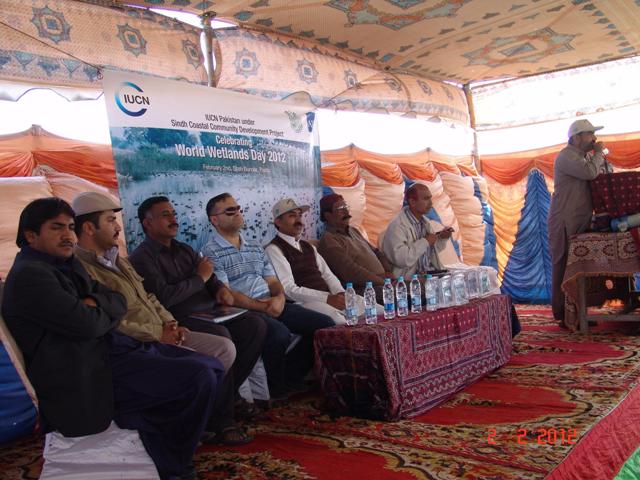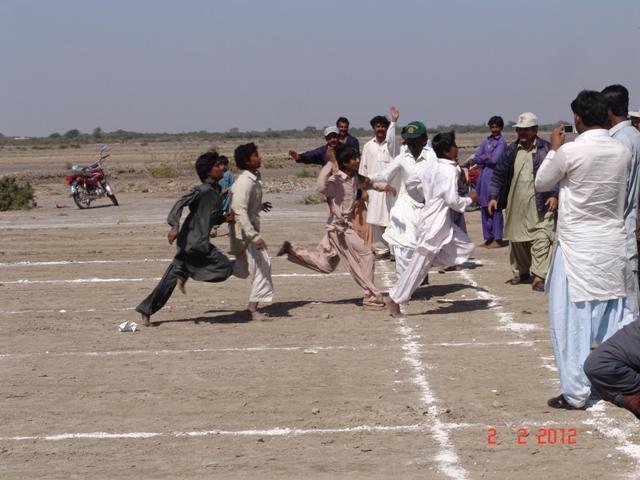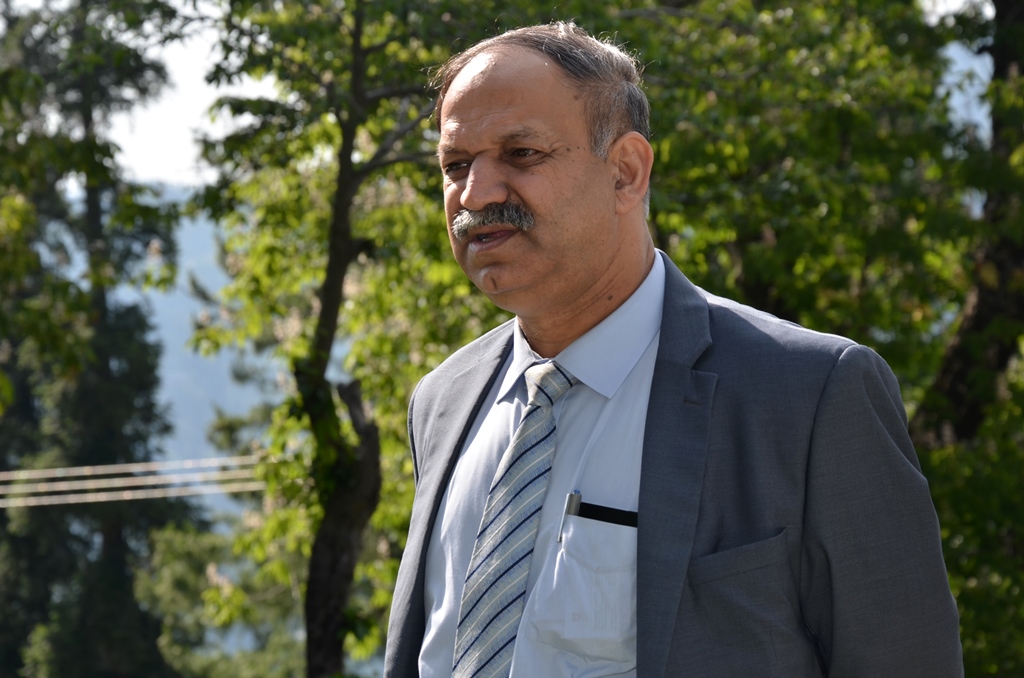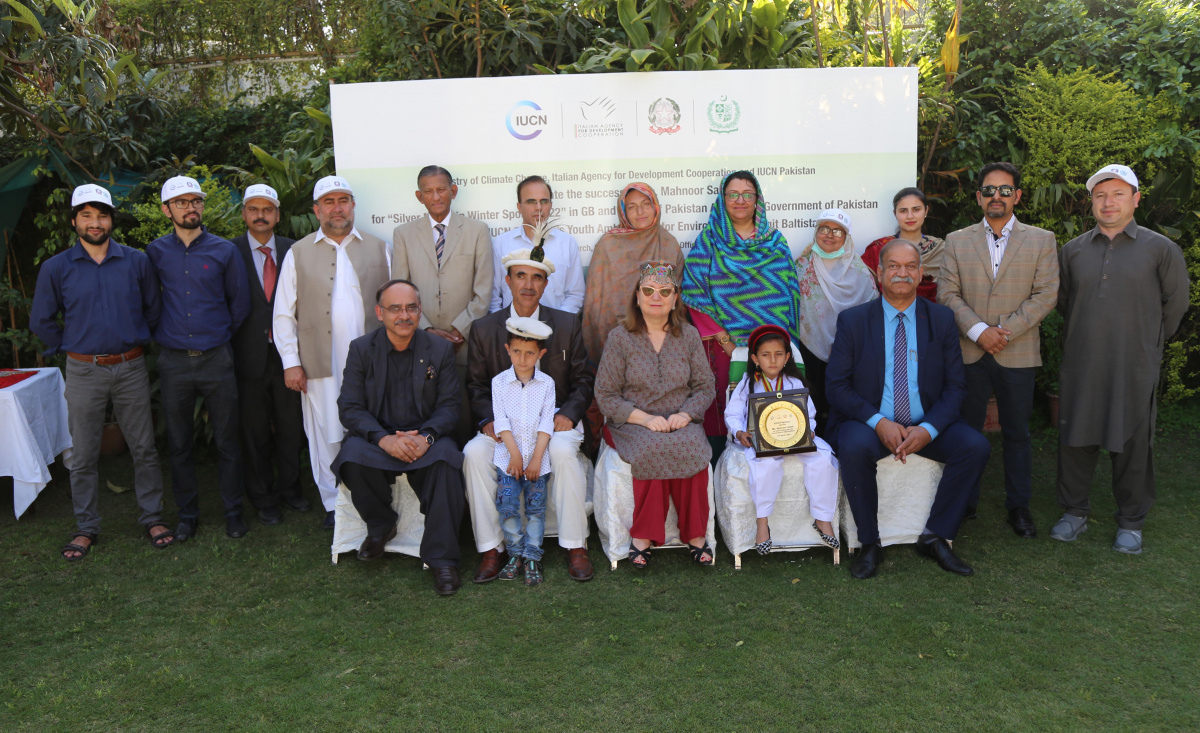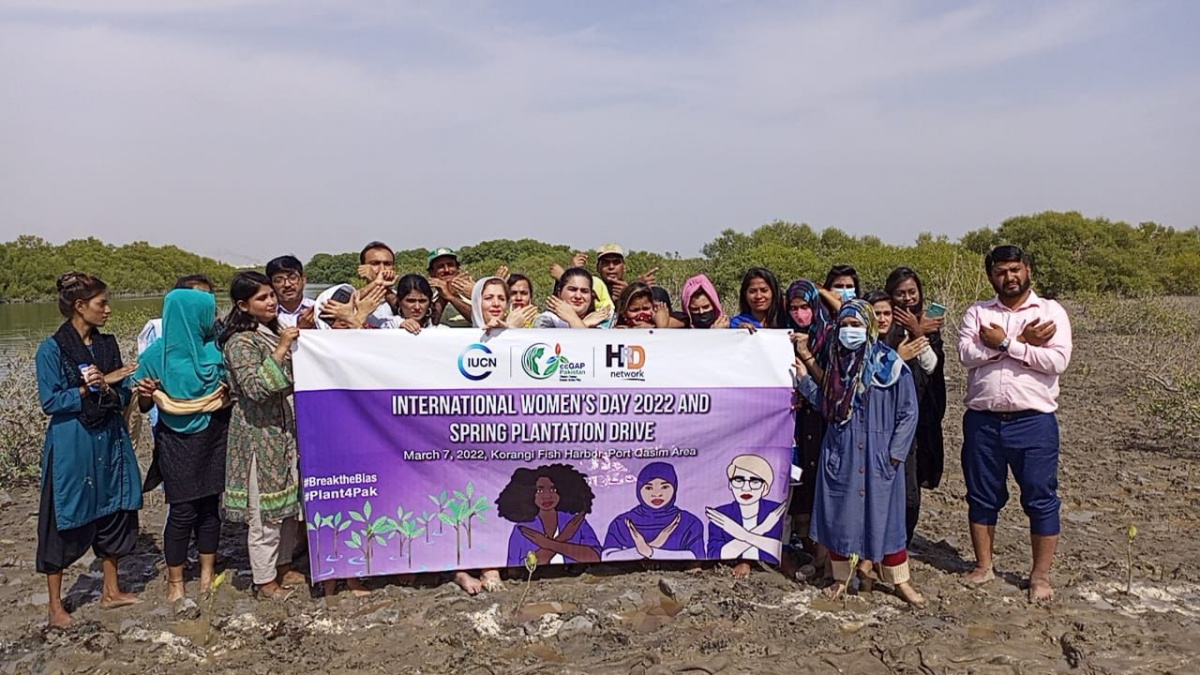IUCN celebrated World Wetlands Day at Shah Bundar, Thatta
The World Wetlands Day was celebrated by IUCN Pakistan at Shah Bunder on 2nd February to raise the awareness among communities and to highlight the significance of the wetlands.
An activity for planting 1,000 saplings of mangrove Avicennia marina specie by the community was conducted to raise the awareness about the significance of mangroves and their role in preservation of wetlands. Ghulam Qadir Shah from IUCN highlighted the importance of wetlands and briefed about the history of Ramsar Convention and the role of wetlands in the economy of the country. Farman Jamali of NRSP appreciated the efforts of IUCN for their role in the capacity building, conservation and rehabilitation of coastal ecosystem in Shah Bunder. Saadullah Ayaz of IUCN also highlighted the role of communities in the conservation of wetlands.
A race among three different age groups of youth was also organised on this occasion. At the closing shields were distributed among the winners of the race competition. A large number of members from Shah Bunder communities participated in this programme.
The World Wetlands Day is celebrated globally on 2nd February every year. This day marks the date of the adoption of the Convention on Wetlands on 2 February 1971, in the Iranian city of Ramsar on the shores of the Caspian Sea. It is an inter-governmental treaty that provides the framework for national action and international cooperation for the conservation and wise use of wetlands and their resources. Every year government agencies, non-governmental organisations, conservation organizations, and communities celebrate this day to raise public awareness about the importance and value of wetlands. Theme for the year 2012 is “Wetland Tourism”.
The wetlands and their wildlife are an important part of the global tourism. According to estimates the number of international tourists reached up to 940 million in the year 2010. It is forecasted to grow to around 1.6 billion by 2020. The travel and tourism generates around 5% of GDP of the global economic activity and an estimated 6-7% of the world’s jobs. The half of international tourists traveled to wetlands of all types, but particularly to coastal areas.
Natural beauty and biodiversity of wetlands make them ideal locations for tourism. The income generated through wetlands eco-tourism can be significant and support livelihoods of the wetlands communities locally and nationally. Wetlands provide other services as well, such as water, food, water purification, erosion control etc.
Pakistan is one of the rare countries that have been blessed with a variety of wetland ecosystems. Pakistan’s wetlands are globally and nationally important for their biodiversity of ecosystems, habitats and species from the high alpine lakes, to small streams, major rivers lowland lakes, reservoirs, coastal wetlands such as mangroves estuaries and beaches. There are nineteen Ramsar sites, in Pakistan. Ramsar sites are wetlands of international importance, designated under the Ramsar Convention.
The Indus Delta is also an important coastal wetland of Pakistan and home to the largest arid mangrove forests in the world. It provides temporary residing grounds to the migratory birds and rich in freshwater and marine fauna and endangered species. Indus Delta was designated as a Ramsar site on November 5, 2002.
Mangrove forest is one of the most abundant ecological communities of the delta, but has declined over the years. In the past, spanned over an area of 600,000 ha along Sindh’s coastline and was believed to be the seventh largest mangrove forest in the world. This forest used to harbor eight species of mangroves in the past, out of which only four still exist i.e. Aegiceras corniculatum, Avicennia marina, Ceriops tagal, and Rhizophora mucronata. The fan shaped Indus Delta is the fifth largest delta in the world. Freshwater reduction, deforestation, pollution and over-fishing are some of the major threats facing the survival of the Indus delta.
For more information:
Ghulam Qadir Shah, NRM Coordinator
IUCN, International Union for Conservation of Nature
Karachi Phone: +92 21-35861540-2, Fax: +92 21-35861448
Email: Ghulam.qadirshah@iucn.org.

